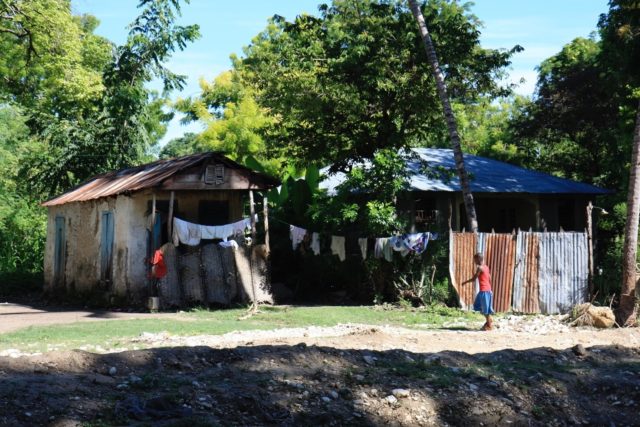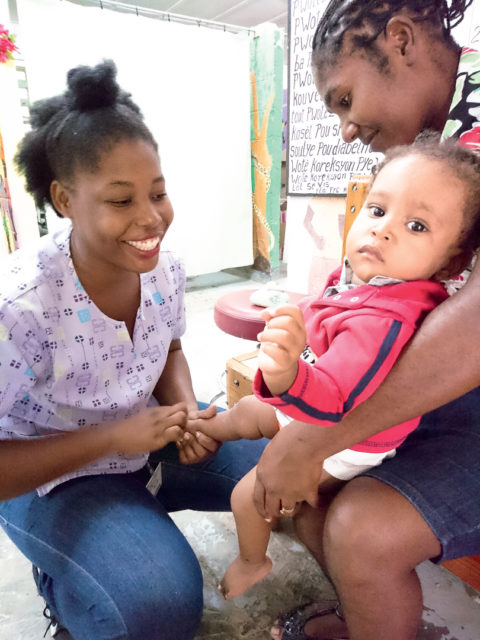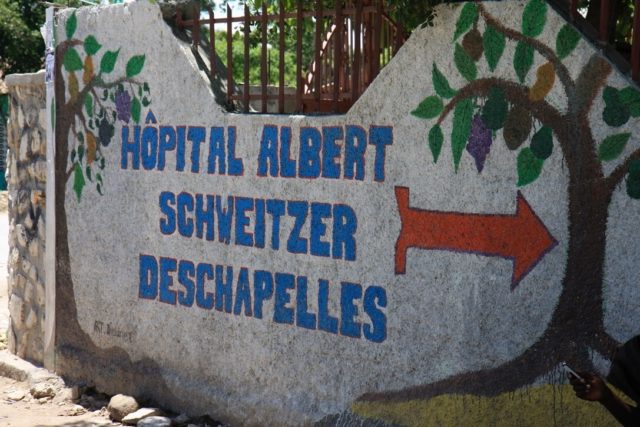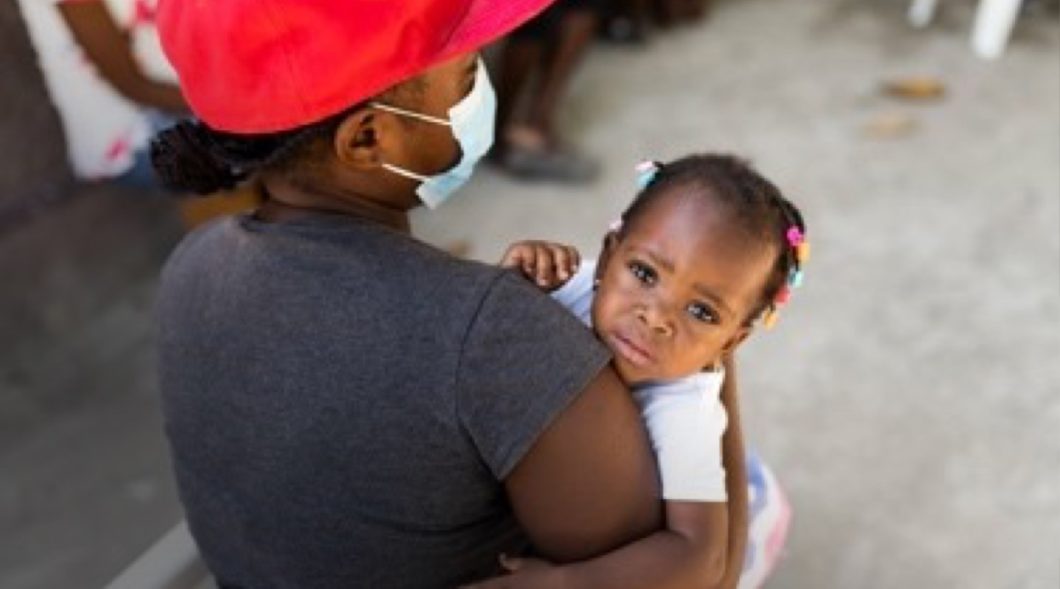
Interview with Fabiola Jean Pierre
Fabiola Jean Pierre – her exciting life as an orthopaedic technician at medi for help in Haiti
After the earthquake in Haiti in January 2010, medi launched the aid project medi for help. Working closely with the Hôpital Albert Schweitzer, the objective was to offer an unbureaucratic way to help the victims of the quake on site and to provide those in need with leg prostheses. The specially set-up workshop quickly developed into the largest point of contact for orthopaedics in the Caribbean. Today, the range of care provided mainly includes traumatological and orthopaedic cases. So far, over 7,000 patients have been treated. Fabiola Jean Pierre, an orthopaedic technician at medi for help since 2016 and our workshop manager in Deschapelles since 2017, relates her experiences and life in Haiti in an interview.
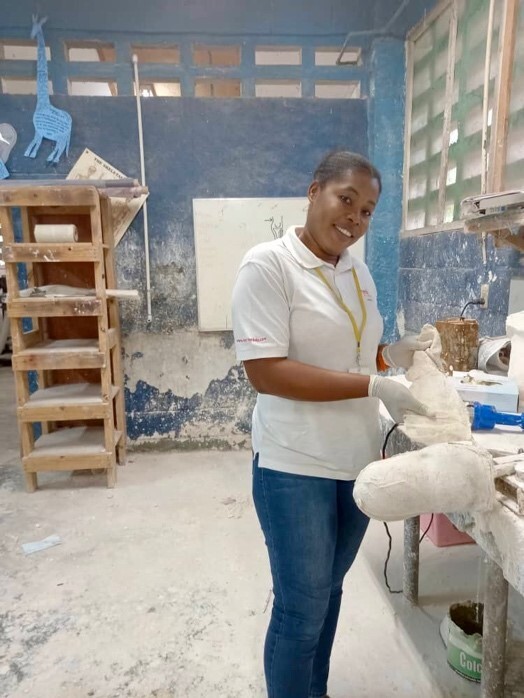
Fabiola, you have been employed at the medi for help orthopaedic care center in Deschapelles for five years. What is special about this project?
I thank God and medi for help for this great opportunity that they have given the Haitian people, my team and me. This is something very special, because orthopaedic care costs a lot of money. Here in Haiti, people don’t have the money to get a prosthesis or an orthotic aid. But with the help of the medi for help care center and the Albert Schweitzer Hôpital in Deschapelles, they now have a chance.
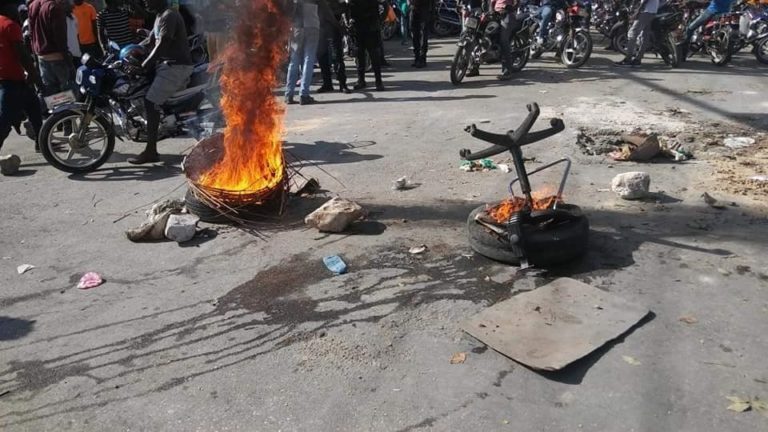
Violent uprisings by the political opposition have dominated Haitian life for several years now. Even now, roads are repeatedly blocked, and the transport of food, fuel and even drinking water is often impossible. What are the challenges you faced during this time? And how were they resolved?
The biggest challenge I’ve faced was when for some time we had no supplies to provide to patients. They don’t stop explaining their problems. They need repairs and readjustments. They need replacements after a while. There are many children who have outgrown their aid. When we did not have the necessary supplies to help them, they waited patiently. They have no money and nowhere else to go. I usually solve problems like these by calling my colleagues from other workshops to borrow or swap materials and return them when I have supplies again.
How do you like working with the team?
I enjoy working with this team – together we can make everything smoother and more successful. I feel very a strong connection to the current team. We are a unit and are motivated by the need to support our Haitian brothers and sisters together. Everyone knows their job and performs it with passion and joy. We live as a family and have respect for one another.
Can you describe your typical working day?
I get up at 7:00 a.m., have breakfast, and then go to the clinic. We open at 8:00 a.m. When I arrive at the workshop, I check my email. Then I talk to my technicians about new physical therapy patients, we evaluate them together, and take plaster casts. I support my team in the work that needs to be done. In the late afternoon I do some administrative work like checking inventory, and then we put together the request for the next day before we close at 5:00 p.m.
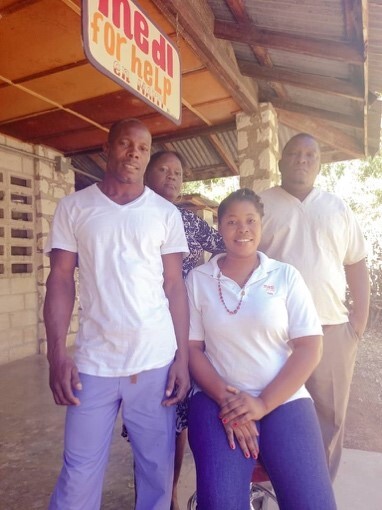
What is the general and medical reality of the care situation in Haiti?
There are not enough hospitals with qualified doctors or nurses available to care for sick people. As a result, most patients suffer for quite a long time before an early death due to the lack of medical care. The worst thing about this is that, even if there is a functioning hospital, people still do not get help because it is too expensive. Thank goodness there is the Albert Schweitzer Hôpital. Here is another opportunity for you to help people who cannot afford it.
Are there differences between rural areas like Deschapelles and the cities?
In the rural areas, people know each other and stick together more. Sometimes they eat together, and when they have a problem they solve it together. The country is safer compared to the cities, where everyone is only looking out for themselves. In addition, the temperatures in the country are lower, while the cities are sweltering hot.
What was the most emotional moment of the last five years for you? What will you remember in particular?
I was looking after a little boy – his name is Ronel – and he had a shattered thigh. He was highly motivated and said he wanted to go back to school. That made me very happy. He was active again on the first day after receiving his aid. At that moment, I was very happy and proud of what I was doing.
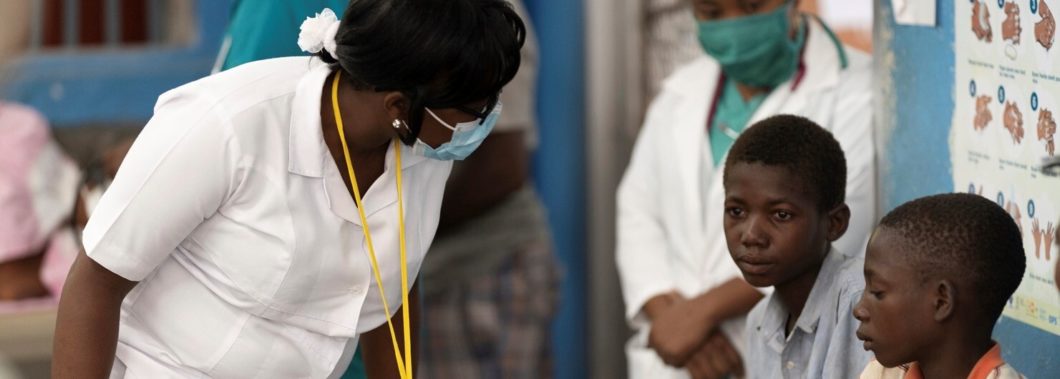
Support medi for help and
Fabiola Jean Pierre now!
How have you been coping with the current corona pandemic?
In my country, Haiti, there was and still is insufficient medical care to protect us from this virus and the disease that comes with it. Above all, I thanked God for his protection. When the pandemic started, my own daughter was just two months old. As I had to protect her and myself from this danger, I stayed home for a month and a half. It was very difficult for me to go back to work, where a lot of people from different places were coming together. That was such an uncertain time, full of stress and fear. Fortunately, all measures advised by the Ministry of Health for protection from the pandemic were followed. I grew up a lot from that moment onwards.
Has the corona pandemic affected the medi for help care center?
The orthopaedic care center wasn’t too badly affected, since it was closed as a precaution, and none of us had the virus.
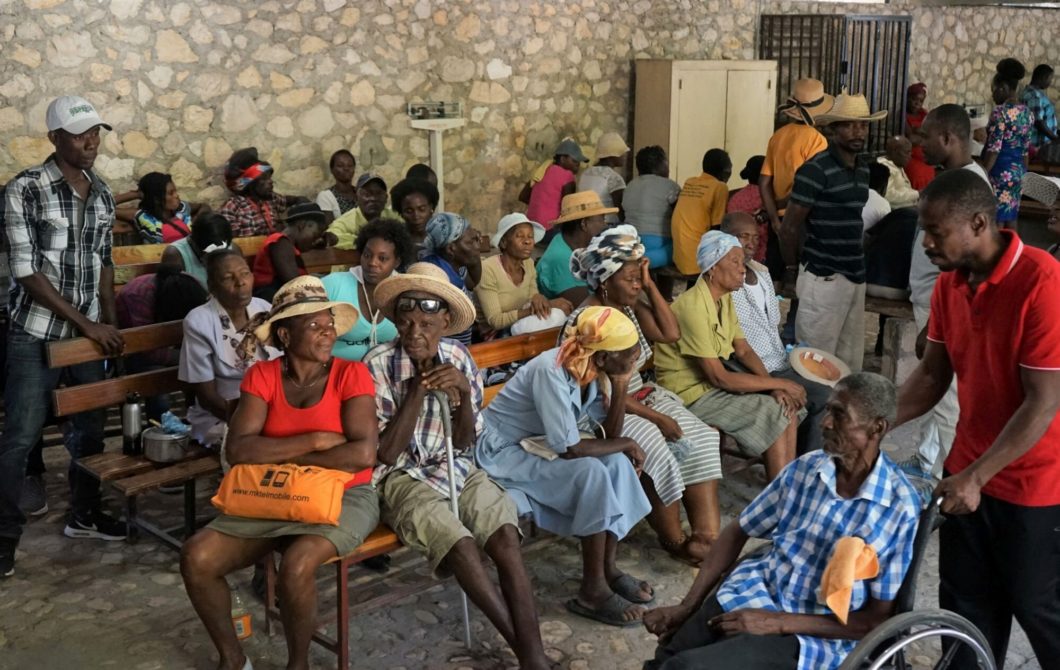
What do you like most about Haiti, the people, and life in your country?
What I like best is our temperature and the heart of the people.
What do you wish for Haiti?
At the moment, there only one thing I want: “Safety”. I work about five hours – and sometimes more – away from my family in Deschapelles. I would love to see them every weekend, but I’m scared of traveling alone, scared of kidnappings, burning tires, and firearms. So I have to wait until I get a ride in the hospital’s car, and it’s not fair!
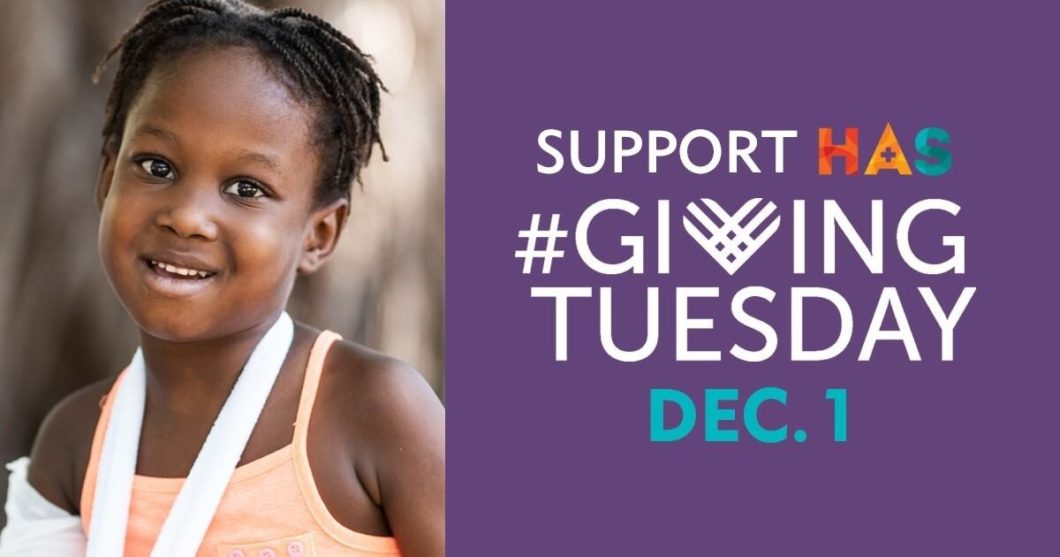
What results are you particularly proud of when you look back on your time as an orthopaedic technician in Haiti?
Since I was a little girl, I have wanted to be useful and of help to others. Now I am proud to be an orthopaedic technician, even if this is a new concept to many Haitians. It made me an adult, which makes me very proud! When people with disabilities come in for treatment in tears, and then they go home smiling and able to do everything they used to do – that’s the greatest reward for me.
Dear Fabiola, thank you for the interview!
